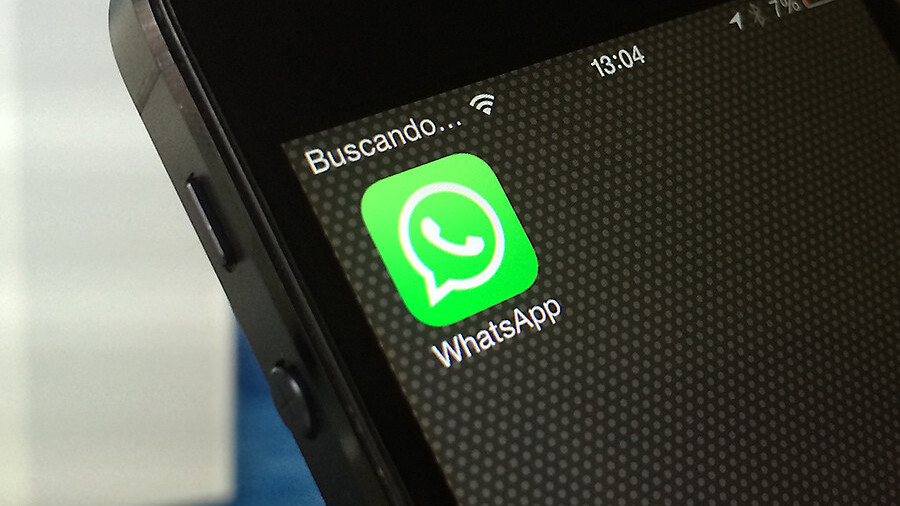January brought us several interesting announcements that will have some impact on Latin America’s tech scene in the next few months, such as the imminent opening of Google’s Campus in São Paulo, while startups also kept busy fundraising and expanding. Here’s the news you don’t want to miss:
Big players
As mentioned, Google is getting ready to open its São Paulo Campus in the Paraiso neighborhood. As previously announced, it will be its sixth Campus around the world. It will be headed by São Paulo-born entrepreneur André Barrence, former director of Minas Gerais’ SEED startup acceleration program and an advocate of Belo Horizonte’s “San Pedro Valley”.
As for Apple, it added traffic data to its Maps in Hong Kong and Mexico, giving users a a better estimate of their ETA. Perhaps more importantly, it officialized the impending opening of Mexico’s first Apple Store, which will be located in Mexico City and will be Apple’s third retail store in Latin America. What was initially a rumor was soon confirmed by Tim Cook on Twitter:
¡Hola México! ¡Feliz de abrir una tienda pronto en su país!
https://t.co/HYBUaSWMcq
— Tim Cook (@tim_cook) January 9, 2016
Apple also seems keen to increase its staff in Brazil, where it is seeking to fill several job openings in Recife and other locations. On a less positive note, Mexico was also one of the countries where exchange rates led Apple to a price increase for paid apps and in-app purchases, alongside Canada, Israel, New Zealand, Russia, Singapore and South Africa.
Meanwhile, we learned that Samsung Pay was coming to Brazil, Australia and Singapore, beating Apple Pay on the expansion front. Still in the payments space, Starbucks launched its mobile payment-enabling app in Brazil, while Uber started supporting cash payments in Peru through Uber Cash, a first in Latin America. In addition, its UberPool ridesharing option became available in Mexico City.
Facebook-owned messaging app WhatsApp officially dropped its 99 cent annual usage fee in an on-stage announcement from founder Jan Koum at DLD in Munich. Facebook also confirmed that it had rolled out its Reactions emojis in Chile last October as the company launched the feature in a sixth country, Japan, with other countries likely to be follow with the same discretion. On a related note, Nielsen informed that it would now take Facebook shares into account in what it used to call “Twitter TV Ratings” and will be now known as its “Social Content Ratings.” The enhanced service is due to make its commercial debut in the first half of 2016 in the US, Mexico, Australia and Italy.
M&A…
Startup funding platform Gust acquired Fundacity, a network dedicated to helping startups connect with accelerators boasting a portfolio of 100 partner accelerator programs in 152 countries. Fundacity had participated in SEED’s acceleration program and raised funding from Chile’s CORFO, NXTP Labs, Primary Ventures and angel investors (disclosure: NXTP Labs is an investor in my startup, MonoLibre).
A PR spokesperson commented on the deal’s benefits for both companies: “Gust’s network of startups will have access to world-class accelerators, which will vet and nurture promising entrepreneurs. And Gust’s network of early-stage investors will benefit from new high quality investment opportunities. Fundacity’s network of accelerators will have a new pipeline of startup applicants and its accelerator graduates will have access to the largest global network of early-stage investors.”
Colombian grocery delivery startup Merqueo.com acquired its competitor Lulo and made strategic partnerships with food retailers. Lulo had been launched in 2014 by a group of entrepreneurs who went on to found Kiwi, an AI-based personal assistant that will now be their main focus. As for Merqueo’s founders, they previously ran Domicilios.com and Pidefarma.com, a pedigree that helped them raise funding for Merqueo and should fuel its expansion into Chile and Mexico in the next few months.
Back in the US, the parent company of satirical publication The Onion and its media properties received investment from Hispanic media giant Univision in exchange for minority ownership. While terms weren’t disclosed, the deal was called an acquisition by several media outlets, including Fortune, based on earlier reports from National Public Radio that the broadcaster will own a 40 percent stake, “which gives it effective control over the site and its related assets,” reporter Mathew Ingram noted.
“The Onion is a complementary extension of UCI’s Spanish- and English-language digital portfolio, broadening the Company’s multicultural, digital footprint and its reach with a highly coveted millennial audience,” the group noted in a statement. Univision had previously acquired The Root, a media outlet targeted at African Americans and boasting 5 million monthly unique users.
… and shrinkages
Yahoo announced the shutdown of its offices in Mexico City and Buenos Aires. Talking to TechCrunch, at least one source assured that both were profitable; however, the company now hopes to “maximize growth” by having its São Paulo and Coral Gables teams manage all of its Latin American operations.
Rocket Internet-backed Easy Taxi confirmed it had exited Asia, TechCrunch also reported. As you may remember, the taxi booking company had announced its merger with Colombian competitor Tappsi a few weeks ago, foretelling its renewed focus on Latin America.
Funding rounds
Mexican fund LIV Capital made a follow-on investment in Rocket Internet’s e-commerce platform Linio last December. The company is headquartered in Mexico with a presence in Argentina, Chile, Colombia, Ecuador, Panama, Peru and Venezuela, and is sometimes dubbed “the Amazon of Latin America.” However, sources also told Spanish media outlet Novobrief that Rocket could soon lay off 30 percent of Linio’s 1,500 employees across the region.
Latino-focused media content company Mitú raised a $27 million Series C round from Dreamworks Animation’s AwesomenessTV, Verizon, WPP and other investors, Variety reported. MiTú targets young audiences in both English and Spanish, and had previously raised a Series B funding round led by Upfront Ventures, which also took part in this new round. “With young audiences, you need to reach them online and this investment in Mitú is a great vehicle for clients of WPP companies to accomplish that,” WPP chief digital officer Scott Spirit told Variety.
Peter Thiel’s Founders Fund led a $52 million financing round in Brazil-based startup Nubank last December, DealBook revealed. Nubank is a fintech venture providing a MasterCard and related mobile banking services to Brazilian customers. It is headed by David Velez, formerly a partner at Sequoia, which was first to back the company in 2013 and also took part in this new round alongside returning investors Kaszek Ventures and Tiger Global Management.
Edtech startup and fellow YC alum Platzi raised a $2.1 million round from Omidyar Network, 500 Startups, FundersClub, Nazca Ventures and Amasia Ventures, as well as business angels. Platzi was previously known as Mejorando.la, and has offices in Bogotá, Mexico City and San Francisco (disclosure: I work part-time for Platzi).
Argentine-born social ad startup Funnely raised seed funding just shy of $1 million led by Verizon Ventures, TechCrunch reported. Funnely is a 500 Startups graduate that helps e-commerce platforms use data to optimize their ad campaigns and automate them.
Brazilian classifieds platform Oba raised a R$2,6 million investment from unnamed “international investors” (around $666k USD at the current exchange rate). According to Startupi, it will use this new funding to further invest into partnerships and sales operations.
500 Startups announced its sixteenth batch, “the largest accelerator cohort in 500 Startups history with 53 companies in total.” Its announcement mentioned that represented nationalities among team members included Argentina, Brazil and Ecuador, which helped us identify a few Latin America-related startups on the list: iBillionaire, which lets users invest “like billionaires” (see our previous story); Worthix, which designs customers surveys and whose CEO Guilherme Cerqueira is Brazilian; and Qwil, which provides “instant pay for the on-demand worker” and is collaborating with Argentine studio Aerolab.
New launches
Standalone streaming service HBO Go landed in Mexico as a result of a partnership between HBO Latin America and Dish, and following a similar rollout in Colombia last December. The service is available to broadband subscribers regardless of their Internet provider, and no pay TV subscription is required. Monthly subscriptions cost 139 Mexican pesos a month (around $7.53 USD), payable both online and offline through cash payments, and grant access to movies and TV series from the HBO/MAX catalogue.
Argentine gaming studio Etermax announced that 2016 would see the launch of Trivia Crack for Kids, a child-friendly version of its global hit Trivia Crack, which was the App Store’s most downloaded free iPhone app in 2015. In addition, Etermax will add several gameplay updates for Trivia Crack and its sequel Trivia Crack Kingdoms, such as “Photo Match”, “Image Questions”, community channels, private channels and solo play mode. As previously hinted, it will also release “Trivia Crack X,” a standalone app enabling users to create and share their own quiz questions.
Funding sources
Netflix’s CEO Reed Hastings shared on Facebook that he would be personally financing a $100 million philanthropic education fund, the Hastings Fund, aimed at “[partnering] with communities to significantly increase the number of students who have access to rich and holistic educational experiences.” Its first grantees are the Hispanic Foundation of Silicon Valley and the United Negro College Fund (UNCF), with a $1.5 million initial investment.
Rocket Internet raised $420 million in the first closing of its new fund, including a $50 million contribution from the German group itself, Tech.eu reported. “Through co-investing with Rocket Internet, the Fund will have unique access to the attractive and diversified investment opportunities of high growth proven Internet based business models with a focus outside the U.S. and China as well as to the investment experience and the operational platform of Rocket Internet,” the group wrote in a statement (including a non-general solicitation disclaimer).
As we foretold last November, the Brazilian state of Minas Gerais is resuming its SEED program (in which SEED stands for Startups and Entrepreneurship Ecosystem Development). SEED’s first two editions had welcomed 73 startups, including 20 non-Brazilian ones, before a change in government seemed to put its future into question. With that in mind, its comeback with only minor changes is good news for the entrepreneurial ecosystem.
The new SEED is coordinated by the State Secretariat for Science, Technology and Higher Education (SECTES), with financial resources of the Minas Gerais State Agency for Research Development (FAPEMIG), and will now have up to R$3.2 million to invest (around $820k USD). The third call for projects was launched in January and will remain open until February 10th. Global applicants will compete for a chance to receive seed capital, visas, mentorship and co-working space within Belo Horizonte’s Espaço CentoeQuatro starting from next May.
Public policy
Brazilian president Dilma Rousseff enacted a new measure that put an end to tax breaks for computing products. This decision occurs in the context of the country’s deepening political and economic crisis, with the obvious purpose of maximizing tax collection. However, it also reflects a certain short-termism, as previously adopted tax break measures were meant to foster digital inclusion, which seems necessary for Brazil to grow in the long run.
Job postings revealed that Uber was getting ready to land in Buenos Aires, a move which according to rumors might happen as soon as next March. This information renewed the debate on taxi legislation in the city, where the US company may struggle to operate legally. As a matter of fact, current laws seem to consider that radio taxi services are the only acceptable type of third-party bookers – a situation that Easy Taxi has been lobbying against, among other things with a petition published on Change.org 3 weeks ago. “Easy Taxi is NOT A RADIO TAXI service; we need to change the LAW for technologies to be part of the city’s system of coexistence,” it says (translation ours, caps theirs).
Good reads from across the Web:
- 4G uptake to skyrocket in Brazil [ZDNet]
- Brazilian e-commerce sees growth in 2015 [ZDNet]
- Buenos Aires, Argentina: small market, global mindset [Financial Times]
- Encuesta de compensación de programadores en el territorio Colombiano — 2016 [Medium – in Spanish]
- Negocios B: Colaborativos [Revista Capital – in Spanish]
- Um ano com mais desafios [StartupBrasil – in Portuguese]
Read next: 5 tips for launching your startup in Latin America
Image credit: Álvaro Ibáñez on Flickr
Get the TNW newsletter
Get the most important tech news in your inbox each week.





